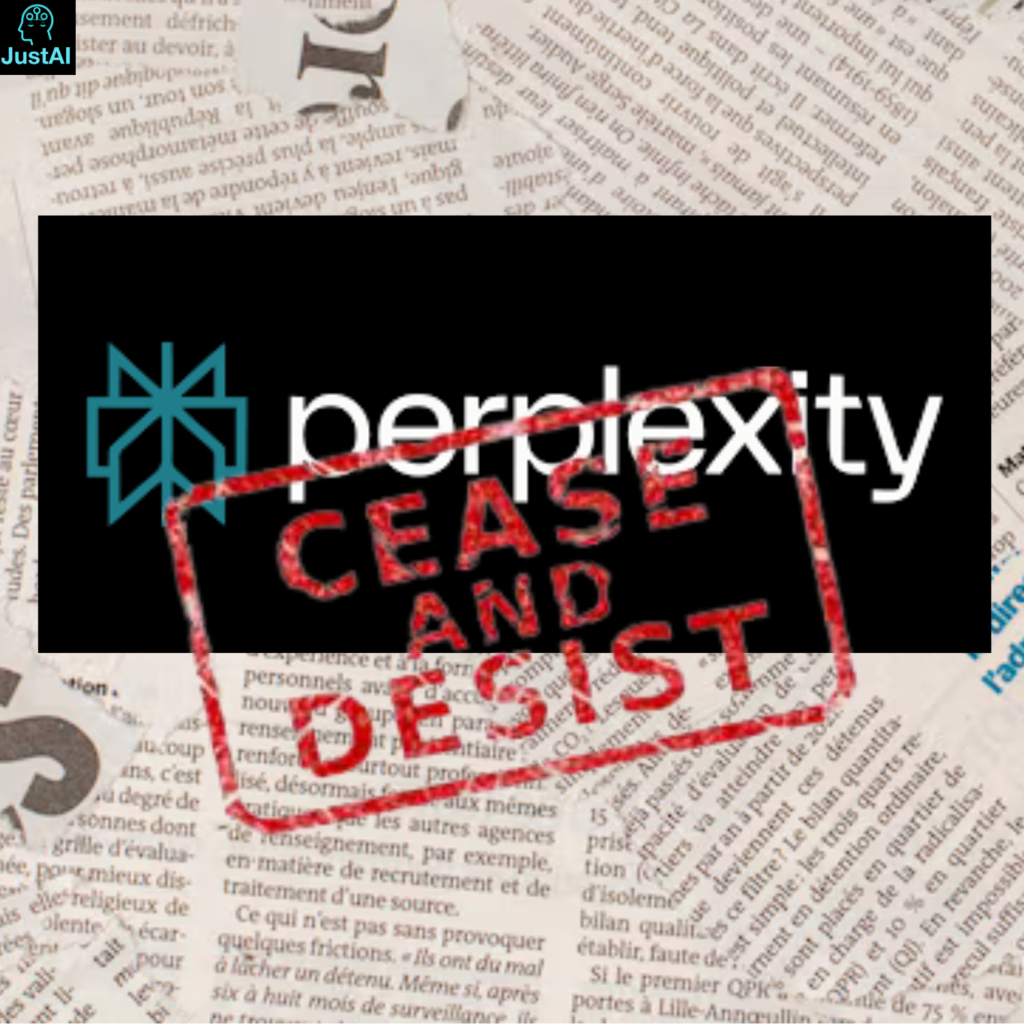Highlights
- NYT Issues Legal Notice to Perplexity: The New York Times has sent a cease-and-desist notice to AI startup Perplexity.
- The Allegation of New York Times: The New York Times claims Perplexity, an AI search startup, used its content without permission.
- Potential Industry Shift: If the NYT prevails, this could set a legal precedent, reshaping how AI firms use third-party content and forcing new content-sharing models across the industry.
Introduction
The New York Times (NYT) has taken a strong stance against the unauthorized use of its content by sending a cease-and-desist letter to AI startup Perplexity. This dispute is part of a broader trend in which major media outlets are confronting AI companies over content use, marking a significant moment in the clash between traditional media and emerging AI technologies.
The Allegation Against Perplexity
NYT’s cease-and-desist notice accuses Perplexity of using its articles in the startup’s AI-powered search engine without appropriate licensing. Perplexity, a San Francisco-based company valued at $3 billion, is backed by prominent investors like the Bezos family fund and NVIDIA. The startup uses advanced AI to generate search results and insights from various sources across the web, including news articles. The issue arose when the NYT discovered that Perplexity was allegedly using its copyrighted materials without permission to train its models and deliver search results, which they claim violates copyright laws.
Growing Media Concerns Over AI Usage
This is not an isolated incident. Other media companies, such as Condé Nast, have also taken legal action against Perplexity and similar AI firms, accusing them of plagiarizing and infringing on their intellectual property. The broader conflict revolves around how AI startups use online content to fuel their models, with little or no compensation or attribution to the original publishers.
Media outlets argue that this practice threatens their business models by siphoning off traffic and advertising revenue. Additionally, they contend that AI companies are profiting from content that they didn’t create, further exacerbating the struggle traditional media already faces in a digital-first world. The rise of AI-generated content and its impact on publishing raises complex questions about intellectual property and compensation, which have yet to be fully addressed by regulators.
Perplexity’s Response
As of now, Perplexity has not publicly responded to the NYT’s cease-and-desist notice. However, it is evident that the company is under mounting pressure to rethink its approach to content aggregation and usage. According to industry insiders, Perplexity has previously expressed its intention to collaborate with publishers through a revenue-sharing model, though details about this proposal remain vague.
The company’s practices have also come under scrutiny for ignoring “robots.txt” files, a protocol that allows website owners to block web crawlers from scraping their content. This disregard for established web norms has drawn criticism not just from media companies but also from web developers and privacy advocates.
Legal and Ethical Implications
The Perplexity case is likely to set a legal precedent for how AI companies use third-party content. Copyright laws were not designed with AI in mind, leaving many gray areas when it comes to how content can be used to train AI models. As AI technologies continue to evolve, the question of who owns and profits from digital content has become a major point of contention between tech companies and content creators.
The outcome of this case could significantly influence how other AI companies handle intellectual property. A ruling in favor of the NYT could compel AI startups to seek licensing agreements with content creators, reshaping the way AI models are trained and monetized.
Conclusion
The cease-and-desist notice from the New York Times to Perplexity marks a pivotal moment in the ongoing struggle between AI development and content rights. As AI continues to advance, striking a balance between technological innovation and respect for intellectual property is crucial. The resolution of this dispute could have far-reaching implications, shaping the future of AI’s relationship with digital media and potentially leading to new regulations in the space.
For AI startups, this serves as a crucial reminder of the importance of ethical content practices and the need for collaboration with content creators, ensuring that AI’s progress does not come at the expense of the creators who fuel it.
References:
Reuters Investigate [ https://www.reuters.com/technology/artificial-intelligence/nyt-sends-ai-startup-perplexity-cease-desist-notice-over-content-use-wsj-reports-2024-10-15 ]
The Print [ https://theprint.in/tech/nyt-sends-ai-startup-perplexity-cease-and-desist-notice-over-content-use-wsj-reports/2312522/ ]
The Verge [https://www.theverge.com/2024/10/15/24270774/new-york-times-cease-and-desist-letter-perplexity-ai-search-engine ]
The Wall Street Journal [ https://www.wsj.com/business/media/new-york-times-to-bezos-backed-ai-startup-stop-using-our-stuff-20faf2eb ]

